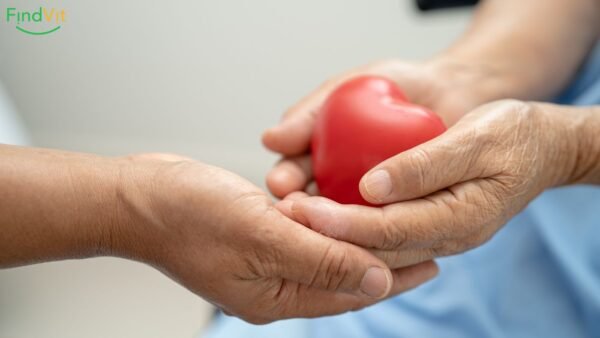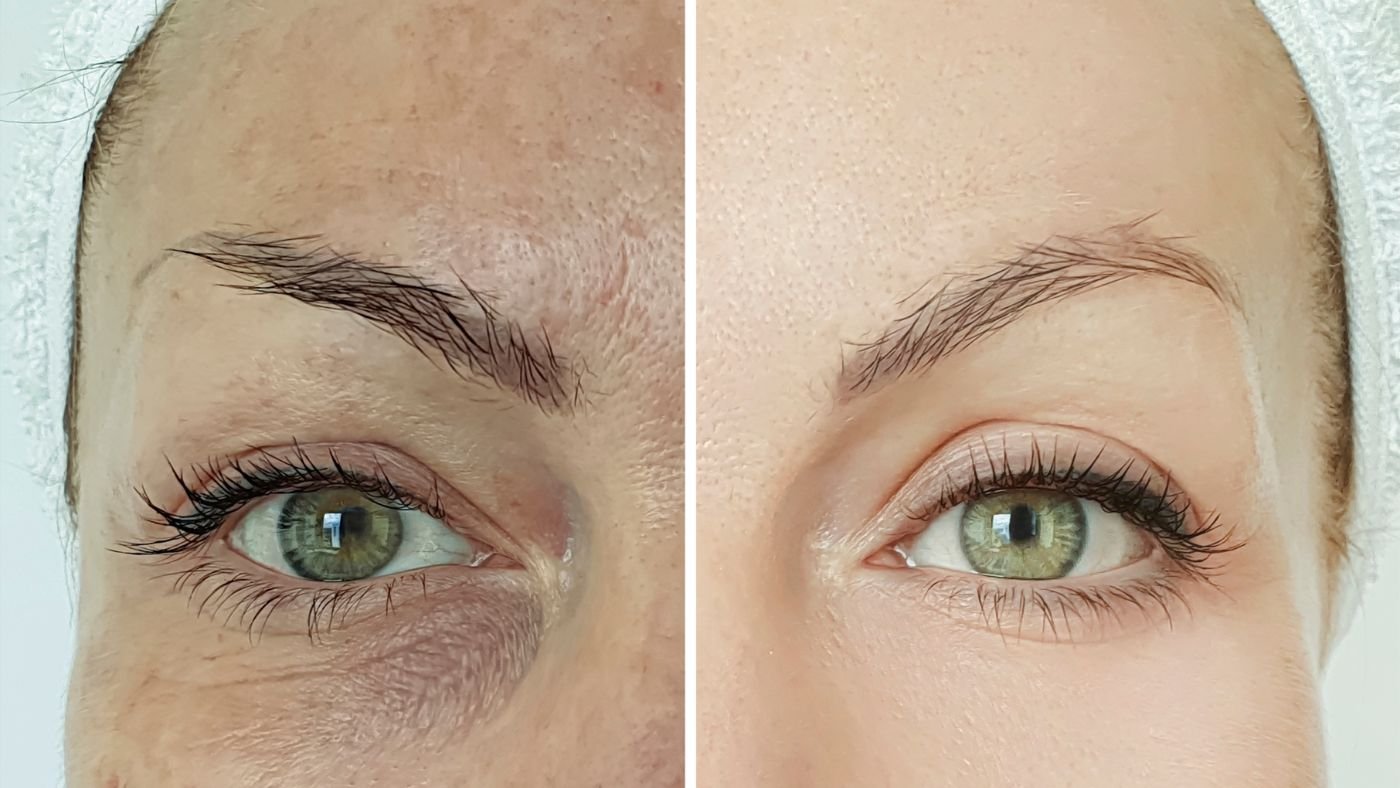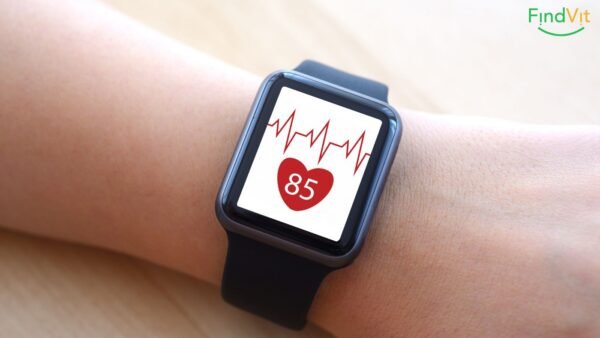
Kaip Sustiprinti Širdį: Kardiologų Patikrinti Metodai Be Vaistų
Kasmet pasaulyje nuo širdies ir kraujagyslių ligų miršta apie 17 milijonų žmonių, ir šios ligos išlieka pagrindinė lietuvių mirties priežastis. Tačiau gera žinia ta, kad…

We often think of our skin to be beautiful, smooth or firm, but there are many things in the body that the skin can show. As the largest organ in the human body, the skin can be a good indicator of internal health. Changes in the appearance of the skin can signal imbalances in digestion, hormones, immune function, blood sugar, and inflammation.
In fact, anything from sagging skin to discoloration can be a sign that something is amiss – and in many cases, skin changes can actually be the first signs worth noticing and analyzing. Healthy skin is not just a reflection of beauty. Healthy skin is also indicative of general health.
Also, real skin care is actually much more than just face masks, body scrubs or creams.
Changed skin helps to find the cause when investigating health problems (from food intolerances to excessive stress).
Here are some possible clues as to what may be going on in the body based on the condition of the skin.
Even dehydration can be seen by the skin. Although a single dehydration can cause headaches, dry mouth or muscle cramps. Chronic dehydration also often causes the skin to sag and itch.
To better understand whether the body is getting enough fluids (including the skin), there is a simple dehydration test. If it takes more than a second or two for the skin to recover after being arrested, it may indicate dehydration.
Many experts recommend 2 liters of water per day per 70 kilograms of body weight to maintain the balance of fluids throughout the body and have clearer and less itchy skin.
More useful information about maintaining fluid balance in the body can be found at: 6 tips to keep your body hydrated.
Maintaining the body's fluid balance is very important in the summer or during active sports. When we sweat, we lose important nutrients. In detail:
Joint pain and digestive problems can be two of the many other symptoms of an autoimmune condition that many people experience. The skin can also warn of risk. For example, a butterfly-shaped rash across the cheeks and nose can be a sign of lupus or an autoimmune skin condition such as eczema.
Diagnosing autoimmune diseases can be difficult and may require multiple tests and visits to more than one doctor or specialist. Also, for something like eczema that mainly affects the skin, a dermatologist may prescribe medication or an immunosuppressant steroid (in severe cases). Specialists can prescribe creams and cleansers, so they recommend applying sunscreen daily to avoid skin irritation and redness from the sun.
It is important to pay attention to the skin, as well as the hair and nails. You may notice hair loss and brittle nails that have visible grooves.
Hypothyroidism (also known as an underactive thyroid gland) is often characterized by weight gain, fatigue and sensitivity to cold, as well as dry, rough skin.
If you notice any of these changes, see your doctor as soon as possible.
It's hard to give up chocolate, but eating too much sugar takes its toll on your skin over time. When we eat sugar, it damages the collagen in our body, making our skin look saggy. Not to mention, sugar can increase inflammation that's already there. Use sugar in moderation, which can cause more problems if you already have an inflammatory skin condition such as psoriasis or acne.
High-glycemic foods like ice cream, cookies, and french fries, which cause blood sugar to spike and then drop again, are especially scary because spikes in blood sugar trigger both inflammation and oil production, which contribute to acne breakouts.
If you notice that your skin has changed and is sagging while eating foods regularly, then you need to reevaluate your sugar intake. It is recommended that you include lower glycemic foods in your daily diet (think fruits and vegetables, lean protein, brown rice, and natural nut butters) and enjoy higher glycemic foods less frequently.
Nutrients recommended by experts that are important for the skin:
Excessive stress is especially harmful to the skin. Like sugar, stress triggers inflammatory reactions, which means it can worsen acne or trigger psoriasis or eczema flare-ups. Stress can also cause changes in cortisol hormone levels.
One way to deal with stress is to revisit your sleep schedule. Sleep is very important and she recommends making sure you get a consistent seven hours of sleep a night. The body can then naturally rejuvenate, manage cortisol and repair and replenish the skin.
Seven hours of sleep is the healthiest - Scientists have found that 7 hours of sleep is best for middle-aged people
While certain (and severe) food allergies cause a definite acute reaction, more subtle food intolerances may have less impact on the body and may show up on the skin.
Certain foods can cause an inflammatory response in the body, which can lead to acne or rashes. One of the most common intolerances is sensitivity to lactose (or milk products in general). Lactose intolerance can appear near the forehead and chin. Gluten is also often intolerable.
If you suspect that dairy products may be a problem, it's worth trying to replace regular milk with alternatives such as coconut or almond milk. After use, see if the skin condition improves. DNA tests are also available to better understand your genetic risk for inflammatory skin conditions and certain food allergies and intolerances.
Celiac disease is when the immune system reacts to gluten, damaging the small intestine. And it can really show on the skin.
Sometimes a cluster of random bumps, blisters, or a skin rash can be a sneaky sign of celiac disease. Some people with celiac disease develop a rash known as Celiac Dermatitis Herpetiformis, which appears similar to herpes or eczema after eating gluten.
Because celiac disease is a serious condition that often requires more medical attention than simply eliminating gluten from your daily diet. If you notice a rash or blister, it's a good idea to see a dermatologist.
Here's another aspect you may not have considered (unless, of course, you already have symptoms of iron deficiency anemia, such as constant cold extremities and fatigue).
Because iron is needed to make red blood cells that carry oxygen to cells, tissues, and organs, iron deficiency can affect any organ in your body.
The skin often shows iron deficiency. Pallor can be seen on the surface of the skin, as well as dark circles under the eyes.
For an iron boost, red meat isn't the only option (although lean beef, along with other animal proteins, including chicken, turkey, and tuna, are top sources of iron). You can also get plenty of iron from plant foods such as: lentils, beans, cashews, spinach and potatoes. Iron supplements are also a good solution.
Plant foods that contain vitamin C, such as oranges, kiwis, and broccoli, can help the body absorb iron better.
Iron is very important. The benefits of iron can be found at: Iron swelling and five things you didn't know about iron
It is important to rememberthat everyone's health is individual and there is no common recipe for everyone!
So, if you want to know if your body might be lacking nutrients right now, health professionals recommend a guide – "Your Day".

Kasmet pasaulyje nuo širdies ir kraujagyslių ligų miršta apie 17 milijonų žmonių, ir šios ligos išlieka pagrindinė lietuvių mirties priežastis. Tačiau gera žinia ta, kad…

Artificial intelligence in medicine has made impressive progress – it has already successfully passed medical licensing exams and can handle internal medicine cases. Even more impressive is that special…

The human heart beats an average of more than 2.5 billion times during a lifetime. This amazing organ works tirelessly to maintain a vital pulse rhythm, the rate of which (pulse rate)…

KIKI Health Zeolitas - Ceolitas, milteliai, 60 g

Trace Minerals Mega Magnesium 400 mg. Liquid with minerals, 118 ml.

KIKI Health Zeolitas - Ceolitas su aktyvuota anglimi, milteliai 60 g.

KIKI Health Zeolitas - Ceolitas, milteliai, 120 g.

SUPER OMEGA-3 - norvegiški žuvų taukai su Omega-3, didelė koncentracija, 100+30 kapsulių
| Cookie | Duration | Description |
|---|---|---|
| cookielawinfo-checkbox-advertisement | 1 year | Šį slapuką nustato GDPR Cookie Consent papildinys. Slapukas naudojamas išsaugoti vartotojo sutikimą dėl slapukų kategorijoje „Analitiniai“. |
| cookielawinfo-checkbox-analytics | 11 mėnesių | Šį slapuką nustato GDPR Cookie Consent papildinys. Slapukas naudojamas išsaugoti vartotojo sutikimą dėl slapukų kategorijoje „Analitiniai“. |
| cookielawinfo-checkbox-functional | 11 mėnesių | Slapukas nustatomas pagal GDPR slapukų sutikimą, kad būtų įrašytas vartotojo sutikimas dėl slapukų kategorijoje „Funkciniai“. |
| cookielawinfo-checkbox-necessary | 11 mėnesių | Šį slapuką nustato GDPR Cookie Consent papildinys. Slapukai naudojami saugoti vartotojo sutikimą dėl slapukų kategorijoje „Būtini“. |
| cookielawinfo-checkbox-others | 11 mėnesių | Šį slapuką nustato GDPR Cookie Consent papildinys. Slapukai naudojami saugoti vartotojo sutikimą dėl slapukų kategorijoje „Kiti“. |
| cookielawinfo-checkbox-performance | 11 mėnesių | Šį slapuką nustato GDPR Cookie Consent papildinys. Slapukai naudojami saugoti vartotojo sutikimą dėl slapukų kategorijoje „Vykdymas“. |
| elementor | never | Šį slapuką naudoja svetainės „WordPress“ tema. Tai leidžia svetainės savininkui realiuoju laiku įdiegti arba keisti svetainės turinį. |
| viewed_cookie_policy | 11 mėnesių | Slapuką nustato GDPR Cookie Consent įskiepis ir jis naudojamas norint išsaugoti, ar vartotojas sutiko, kad būtų naudojami slapukai, ar ne. Jame nesaugomi jokie asmens duomenys. |
| Cookie | Duration | Description |
|---|---|---|
| _ga | 2 metai | _ga slapukas, įdiegtas Google Analytics, apskaičiuoja lankytojų, seansų ir kampanijos duomenis, taip pat seka svetainės naudojimą svetainės analizės ataskaitoje. Slapukas išsaugo informaciją anonimiškai ir priskiria atsitiktinai sugeneruotą skaičių unikaliems lankytojams atpažinti. |
| _ga_JWS80V051Z | 2 metai | Šį slapuką įdiegė Google Analytics. |
| omnisendSessionID | 30 minučių | Šį slapuką nustato teikėjas Omnisend. Šis slapukas naudojamas unikaliam seanso ID nustatyti. Slapukas statistiniais tikslais renka informaciją apie lankytojų elgesį svetainėje. |
| soundestID | sesijos metu | Šį slapuką nustato teikėjas Omnisend. Šis slapukas naudojamas norint nustatyti, ar lankytojas svetainėje yra naujas, ar lankytojas lankėsi anksčiau. |
| Cookie | Duration | Description |
|---|---|---|
| omnisendAnonymousID | 1 year | Šį slapuką nustato teikėjas Omnisend. Šis slapukas naudojamas išsaugoti vartotojo veiksmą svetainėje su unikaliu ID. Slapukas užšifruoja lankytojo duomenis, kad būtų apsaugoti naudotojo duomenys. |
| soundest-views | sesijos metu | Aprašymas negalimas. |
| woocommerce_recently_viewed | sesijos metu | Aprašymas nepasiekiamas. |
